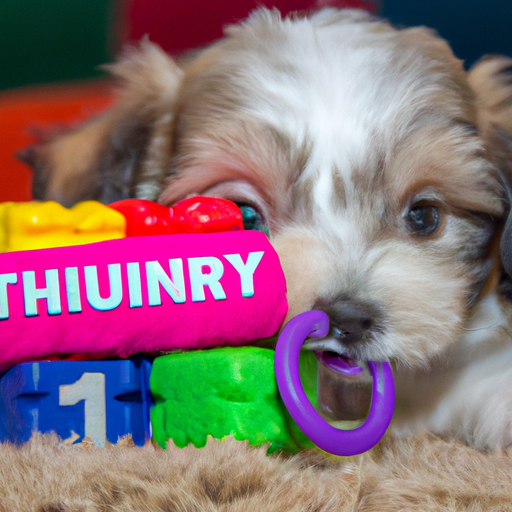Dog teething is a natural process that every puppy undergoes. It’s an important stage in their life, but it can also be a challenging time for you as a caregiver. Understanding the entire teething process, from when it starts to when it ends, can help you support your puppy through this time.
Understanding the Puppy Teething Process
Just like humans, dogs go through a teething process. This is the time when their baby teeth fall out, and adult teeth start to grow. A puppy’s teething period typically begins around three weeks of age and can last until they’re about six months old.
Teething is an essential part of a puppy’s development, but it can also be uncomfortable for them. As a caregiver, it’s important for you to know the signs of teething and how to alleviate their discomfort.
What to Expect During the Teething Process
During the teething process, you might notice a few changes in your puppy’s behavior. These can include:
- Increased chewing: Puppies often chew more during their teething period to alleviate the discomfort they feel.
- Loss of appetite: Some puppies might eat less due to the discomfort caused by teething.
- Irritability: Your usually playful and cheerful puppy might become a bit grumpy during this time.
Puppy teething is a necessary and normal stage in their growth, but it can be quite uncomfortable for them.
How to Help Your Puppy During Teething
Here are some ways you can help your puppy during their teething period:
- Provide chew toys: Chew toys can help alleviate some of the discomfort your puppy feels during teething. They also distract your puppy from chewing on furniture, shoes, and other items.
- Feed soft foods: If your puppy is refusing to eat due to the pain, try offering them soft foods.
- Use a cold, wet washcloth: Soaking a washcloth in water, freezing it, and then giving it to your puppy to chew on can help soothe their sore gums.
Signs of Troublesome Teething
While teething is a normal process, it can sometimes cause complications. Watch out for signs such as:
- Persistent bad breath
- Excessive drooling
- Difficulty eating
If you notice any of these signs, it’s advisable to seek veterinary help.
When Does Teething End?
The teething process usually ends when your puppy is around six months old. By this time, all their adult teeth should have come in. However, this might vary slightly depending on the breed and individual dog.
What Happens After Teething?
After the teething process is complete, you should notice a decrease in chewing behaviors. However, regular dental care for your dog is still necessary to ensure their teeth remain healthy.
Frequently Asked Questions
Q: My puppy is losing teeth, is this normal?
Yes, puppies lose their baby teeth, much like human children do.
Q: My puppy is chewing on everything, what should I do?
Provide them with chew toys. This not only helps with the discomfort, but also prevents them from chewing on inappropriate items.
Q: My puppy’s gums are bleeding, should I be worried?
Bleeding gums can occur during teething. However, if it’s excessive or persistent, seek veterinary advice.
Q: When should I start brushing my puppy’s teeth?
You can start brushing your puppy’s teeth as soon as they start to come in, usually around three weeks of age.
Teething can be a challenging time for both puppies and their caregivers. But with patience, understanding, and a little bit of knowledge, you can help your puppy navigate this stage with ease.



